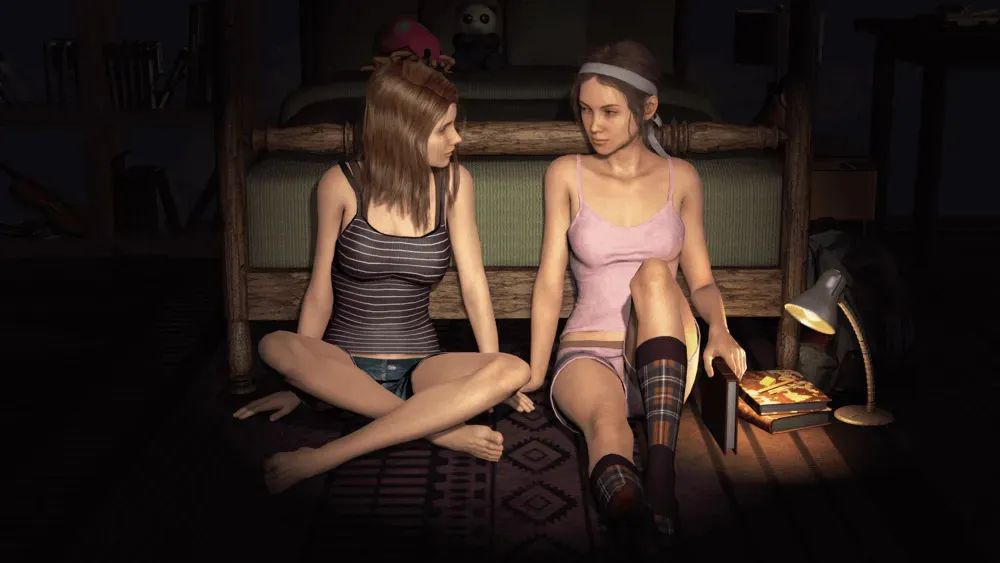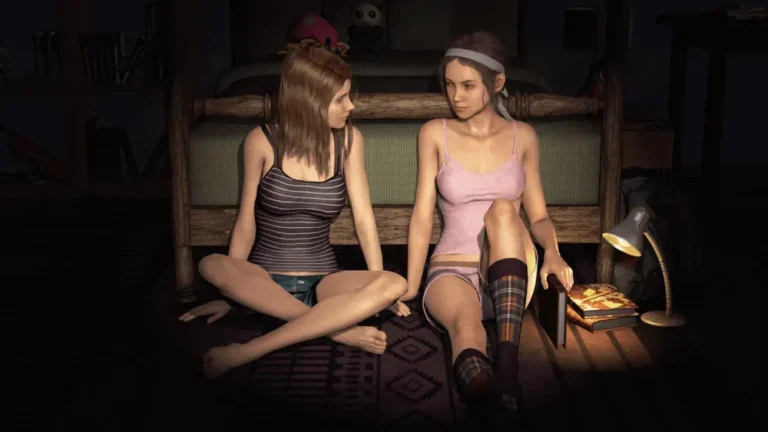
Short Sad Stories
Play Short Sad Stories
Short Sad Stories review
A Deep Dive into the Emotional Visual Novel
In the world of visual novels, ‘Short Sad Stories’ stands out for its poignant narrative and player-driven choices. Developed by Pent Panda, this game immerses players in a story of young adults navigating reality and fantasy, facing unexpected dilemmas and complex relationships. With its final version including DLC, ‘Short Sad Stories’ offers a captivating experience that explores themes of resilience and hope.
Narrative and Characters
The Main Protagonist: Alice
Let me tell you about Alice. 🎀 The first time I booted up “Short Sad Stories”, I wasn’t prepared for how real she would feel. She isn’t your typical, flawless video game heroine. She’s a young woman grappling with a profound sense of loss and a creeping disconnect from the world around her. 😔 Her story is the anchor of this emotional storytelling experience, and Pent Panda has crafted her with such delicate care that you can’t help but see fragments of people you know—or even yourself—in her struggles.
Alice’s journey is defined by her retreat into a rich fantasy world, a coping mechanism that becomes both her sanctuary and her prison. 🏰 The brilliance of this visual novel lies in how it makes you an active participant in her internal conflict. You don’t just watch her navigate grief; you guide her through the agonizingly beautiful moments that define recovery. The player-driven choices you make, from seemingly insignificant dialogues to major crossroads, directly shape whether Alice finds a path toward healing or becomes further entangled in her sorrow. It’s this connection that makes “Short Sad Stories” so powerfully immersive.
Interconnected Storylines
One of the most stunning aspects of this visual novel is how Alice’s path isn’t isolated. 🌐 Her narrative elegantly braids with other characters, each carrying their own unique burdens. This isn’t a collection of separate tales; it’s a tapestry where every thread pulls on another. Your interactions with these characters don’t just affect them in a vacuum—they create ripple effects that fundamentally alter Alice’s perspective and the story’s direction.
I learned this the hard way on my first playthrough. I decided to have Alice keep to herself, avoiding a side character named Leo who was clearly reaching out for help. 🤐 I thought I was protecting her, preserving her energy. What I didn’t realize was that by shutting Leo out, I was locking Alice away from a crucial perspective on her own pain. I missed an entire storyline that provided a key to understanding her own feelings of isolation. This is the genius of the narrative design in “Short Sad Stories”—the player-driven choices are not about “good” or “bad” endings, but about the human connections you foster or neglect along the way.
Here’s a clear example of how a seemingly small decision can branch the narrative:
| Your Choice as the Player | Immediate Outcome | Long-Term Narrative Impact |
|---|---|---|
| Help Leo sort through his late grandfather’s storage box. | Alice spends an afternoon listening to stories and sorting old belongings. | Unlocks a deeper conversation about legacy and memory, giving Alice a new metaphor for processing her own grief. This can lead to a pivotal scene where she decides to open her own mementos. |
| Politely decline to help Leo, citing being busy. | Alice returns home alone, the afternoon passing quietly. | This path reinforces Alice’s isolation. The option to confront her mementos directly is lost, and her emotional arc remains more internalized and, arguably, more tragic. |
Themes of Reality and Fantasy
At its heart, “Short Sad Stories” is a profound exploration of the line between reality and fantasy. 🎭 Pent Panda doesn’t present one as “good” and the other as “bad.” Instead, they masterfully show how both are essential, yet dangerous, parts of the human experience. Alice’s fantasy world is breathtakingly beautiful, a place where her pain is transformed into magical landscapes. But it’s also a seductive trap, a place where she can hide from the difficult work of healing in the real world.
The most powerful emotional storytelling moments occur precisely at the intersection of these two realms. I remember a specific scene where Alice, in her fantasy world, is building a castle out of crystalized memories. 🏰✨ In the real world, this corresponds to her deciding whether to finally clean out a loved one’s closet. The player-driven choices here are intense: do you encourage her to stay in the beautiful, safe fantasy a little longer, or do you gently guide her to take that painful, but necessary, step in reality?
This constant push and pull is what gives the visual novel its incredible depth. Your role is to help Alice find a balance. Can she use the beauty of her fantasy to give her strength, rather than as an escape? Can she learn to carry her memories as treasures instead of burdens? The game doesn’t offer easy answers, because life doesn’t either. The emotional storytelling compels you to reflect on your own coping mechanisms. It’s a poignant reminder that while fantasy can be a shelter, true peace is often found by bravely engaging with the real world, one difficult, beautiful choice at a time. 💖
In conclusion, ‘Short Sad Stories’ is a captivating visual novel that offers a deeply personal and emotional experience. With its engaging narrative and impactful player choices, it stands out as a must-play for fans of the genre. The game’s ability to address sensitive topics while promoting hope and resilience makes it a compelling choice for those seeking a meaningful gaming experience.









